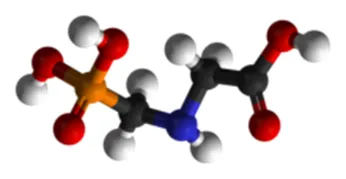
The World Health Organisation (WHO) have a strange and highly misleading terminology when talking about the causes cancer. I first came across this issue a few years ago when the WHO classified red meat as a “Known Carcinogen”. I frequently hear vegetarians and vegans use this classification as a support for the cause of not eating meat, telling people that red meat causes cancer.
As a vegetarian myself, I however, do not make this argument. Not because I think its fine to eat meat, I think the moral reasoning around abstaining from meat is strong enough to support the cause on its own. But specifically because the “known cause of cancer” definition means very little in day to day life.
The incredibly misleading cancer distinction made by the WHO
The WHO classification system indicates the likelihood of a relationship between a factor and cancer, not the strength of the relationship.
This is a spectacularly important aspect to understand.
Smoking and eating red meat are both placed in the category of Known Carcinogens, however, smoking is almost an order of magnitude more likely to cause cancer when undertaken frequently then eating read meat 1, a factor that is not included in this definition.
To put this another way, the evidence is strong and reliable that these two products cause cancer, but the risk of developing cancer is much much higher for a frequents smoker than a frequent meat-eater.
Other Known Carcinogens include furniture and cabinet making, Chinese-style salted fish and chimney sweeping, as well as the dangerous and high risk cancer causing agents present in the manufacturing industry 2.
Glyphosate
On Friday of last week, the agrochemical company Monsanto was ordered to pay $289 million dollars in compensation to a man that claimed that a product that they produce caused his cancer 3.

Glyphosate. Image credit Wikimedia
Dewayne Johnson, was diagnosed with non-Hodgkin’s lymphoma in 2014. He regularly used the RangerPro weedkiller in his day to day work as a groundsman at a school in California. The RangerPro weedkiller contains the chemical herbicide Glyphosate which formed the focus of this case.
This was the first case alleging the link between glyphosate and cancer to go to trial and, obviously, the first where the claimant won.
Glyphosate exists in the category below "Known Carcinogens"; "Probable Carcinogens"4. Putting the chemical compound in category where we are less sure if it can cause cancer then those mentioned above.
This terminology has a habit of creating spectacular misleading headlines, as was discovered in 2016 when the WHO classified “very hot drinks” as a Probable Carcinogen.

Image credit Pixabay
The Independent, June 15th 2016: Very hot drinks ‘probably’ cause cancer, UN says
The Spectator Health, June 16th 2016: Very hot drinks ‘probably’ causes cancer so leave that tea to cool off
The Daily Mail, June 15th 2016: Very hot drinks ‘probably’ cause cancer of the oesophagus, world health chiefs warn.
The Telegraph, June 15th 2016: Hot drinks probably cause cancer, warns World Health Organisation
Not even the quotes around ‘probably’ for this last one, that’s very bold of them!
Note how these articles do not say that hot drinks will cause cancer, or that a specific case of oesophagus cancer was caused by drinking hot drinks.
Why this has me worried
The reliance on this definition in this court case rings alarm bells for me. While it is perfectly natural to want to attribution a specific cause to a cancer it is particularly difficult to do so on a single case basis. Cancer is a game of probabilities and one that is effected by many thousands of factors.
A while back I wrote a post on the topic of the "Vaccine causes [blank]” problem, in which I talk about how a simple ”this causes that” stories can get out of hand and how they can be particularly difficult to correct for after the rumour is let lose into the wild. Combine that with reporting such as the following and what you have is a particularly convincing argument.
The epidemiology of cancer is spectacularly complicated. I don’t blame anyone for thinking that this “Glyphosate causes cancer” theory has now been confirmed due to this ruling. However, trust me, this is not how you want scientific issues to be settled.
An emotional, heartfelt, testimony is not a viable substitute for a series of rigorous scientific studies followed by meta-analysis.
A jury of twelve members of the public is not the same as the combined consciences of the scientific community.
In science nothing is as simple as “the [blank] causes the development of someone’s [blank]” so the precedent set by the case here is worrying. Farmers currently warn that banning the chemical could cut crop yields by more than 10%, costing the economy hundreds of millions of pounds 3. As someone that has lost many nights of sleep worrying about global food security, this has me deeply concerned.
Warning: I had two cups of tea and two cups of coffee while writing this post today (both of them very hot!). Please consult a medical professional if you intend to do similarly in the future.
About me
My name is Richard, I blog under the name of @nonzerosum. I’m a PhD student at the London School of Hygiene and Tropical Medicine. I write mostly on Global Health, Effective Altruism and The Psychology of Vaccine Hesitancy. If you’d like to read more on these topics in the future follow me here on steemit or on twitter @RichClarkePsy.
References:
[1] The Guardian: Meat and tobacco: the difference between risk and strength of evidence
[2] The Guardian: 116 things that can give you cancer
[3] The BBC: Weedkiller cancer ruling: What do we know about glyphosate?
[4] Guyton, K.Z., Loomis, D., Grosse, Y., El Ghissassi, F., Benbrahim-Tallaa, L., Guha, N., Scoccianti, C., Mattock, H. and Straif, K., 2015. Carcinogenicity of tetrachlorvinphos, parathion, malathion, diazinon, and glyphosate. The Lancet Oncology, 16(5), pp.490-491.